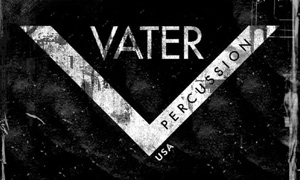 Jason Miles
Jason Miles

Jason Miles is a world-class producer, artist, arranger, composer and keyboardist based in the New York area. He has crafted music for Miles Davis, Luther Vandross, Marcus Miller, Gato Barbieri, David Sanborn, Whitney Houston, Chaka Khan, The Crusaders, Michael Brecker and many others. As a producer, Jason has achieved as much success as anyone could hope to achieve as a jazz composer, arranger and synthesizer programmer. His work has been heard on a variety of top-selling records, including Luther Vandross’ Power of Love, Michael Jacksons HIStory and the classic Miles Davis album Tutu. In addition to his work with other artists, Miles has released two highly acclaimed jazz albums of his own. Keyboard magazine critic Stephen Israel called Jason one of the best in the business…one of the finest composers around. He’s been involved in more than twenty projects that have received Grammy Awards and/or nominations.
He is currently involved in one of the most interesting music projects on the scene today…Global Noize. Global Noize is a project that has long been brewing in Miles’ mind but the idea was solidified when he got a call from his friend DJ Logic to join him for a performance at the Blue Note in NY. “On that day I had a horrible root canal and was mourning the loss of a close relative. I thought that this could be just the tonic I needed to pick myself up,” recalls Miles. The night was exactly what Miles had hoped and from this experience he knew that he and Logic had a special connection. Global Noize, which DJ Logic describes as “a hip and eclectic musical journey crossing all boundaries,” is an organic, free-spirited sonic brew of some of the best elements of jazz, funk, electronica and world fusion – it is music without borders. The group has played in many great venues and festivals – Aspen Jazz, Monterey Jazz Festival, Berks Jazz Festival, and Jazz Fest New Orleans, to name just a few. Global Noize makes it easy for artists and musicians from wherever they perform to participate in their performance. It is one of the goals of the group to perform in countries all over the world and have local and national artists perform with them as special guests.
Jason spent a few minutes with us to share some details on both his background and his Global Noize project, along with some candid perspective on the current state of the music industry – in a brief Q&A session.
What are some of the keys to being a successful and effective studio musician? Any tips on how to best gain studio experience?
I would like to say that there is reason to set ones sites on being a studio pro. But the reality is that this is a dying art. There are 20% of the sessions that there used to be. My view is that you have to understand the studio environment and it’s vibe, from the producer to engineer, etc. You have to know how to interact with people even though the pressure is constantly on. You have to have a confidence that makes clients and artists know that you are confident and their music is in good hands. Knowing a number of styles of music helps as well. You can’t be pigeon holed into one kind of music. You should be a good to excellent reader. You also need to be open to taking direction and know that this music isn’t yours. It is somebody else’s. You need to make them happy and confident that they made the right choice by hiring you.
Who are some of the folks you have enjoyed working with in the studio over the years?
Miles Davis, Luther Vandross, Chaka Kahn, David Sanborn, Suzy Bogguss, Vinnie Coliauta, Will Lee, James Genus, DJ Logic, Falu, Jeff Mironov, Dean Brown…these are just a few, but all very unique musicians and artists. When the door closes and you are in the room for sometimes weeks and months, the true nature and personality of the people you are around comes out. Do they inspire you to do great work? It is so important to be able to meld with the characters and feel comfortable in a room with these folks for 12-14 hours a day. There are some people who don’t make life comfortable when you work with them. When I morphed into being a producer (almost 20 years ago) I said that everybody who I work with will get treated the way I expected to be treated – whether it was live or in the studio. I know many of the same people I met when I got into the business because their talent and personality inspired a certain loyalty.
Can you share details on one of your more memorable studio experiences?
There are so many interesting experiences. We were working at Right Track Studios on Miles Davis’s album Amandla. It was a Friday and my wife came into the city to pick me up when the session was done. Kathy was very cool and nobody minded her coming to the studio. Miles really liked her as well. It had been a really busy month with lots of work. I was tired. Miles was going into the room to play on a song. There was definitely an exciting vibe as there always was when Miles was going to play. I sat on the couch behind the board at Right Track Studio A. Kathy sat next to me. Marcus (Miller) and Tommy LiPuma were sitting at the Board. Miles starts to play and the next thing I know I fall asleep in Kathy’s lap. The next thing I know, I open my eyes and Miles is standing right over me. He looks at me and says , “I sounded that good huh, Jason?” I was at a loss for words.
Any tips on being “diplomatic” in the studio? How do you know when it’s best to provide suggestions, or when it’s best to simply be quiet and do what you’re told?
When I looked around the room I always saw some great musical minds. I decided that it’s best to take direction and keep your mouth shut and do the gig. If I was asked for a suggestion, I gave it. If not, I defer to the producer and arranger. If something is missing and nobody is picking it up, then I find it appropriate to say something. You also have to feel out the situation. Some producers wanted suggestions…others knew exactly what they wanted so I let them run with it. I know that as a producer, if I have some amazing musician in the room, I want to give them the space and let them create and, if needed, give suggestions. Usually when you are playing and working on a track, the suggestions make themselves obvious. Many excellent producers have their fingers on the pulse of the song and project.
What for you is the most frustrating aspect of the music industry today?
When you have been in the music world for as long as I have you know that almost everything dealing with the music business is frustrating especially in 2012. First of all, there are 2 industries. The one being run from the major labels and concert promoter point of view, and the one being run by the independents. The majors depend on radio and heavy marketing dollars. The indies rely on social networking. The most frustrating thing is to actually get people to listen to your music. Everybody is being inundated with so much music that it is hard to focus on what’s good. The amateurs have basically taken over because it is now possible for anyone to get their music out there without any filters or gatekeepers. People make CDs and send them to editors and writers who are now receiving hundreds of more CDs than they ever did for review…and so many sites are cluttered with redundancy because there just aren’t that many truly original artists around. You talk with agents who have 50 bands soliciting them who all sound the same. Singers, saxophone players…the clones are everywhere.
I look for that truly unique artist who will find their way because of their talent. I also look for great songs because songwriting these days is a lost art. To me it is still about the music and how much it really touches me and excites me. I’m sure the music is out there, but I’m not getting exposed to it because there are so many genres and artists. When I hear that great CD I buy it or download it.
I have a saying – “since the beginning of time till the end of time, there will never be a shortage of people who want to be in show business.” I think in 2012 this statement is in overdrive. One more thing. Everybody talks about how great Adele’s CD is. Yes it is really good and I enjoy it – but 20 years ago there were 20 albums all as good or better than Adele’s out there in the marketplace available to buy. It shows the current state of music when there is only one CD like that available and being promoted.
While I understand it may be difficult to sum it up in a few short sentences, in your opinion, Jason, in the past 20 years or so, how has technology changed the music industry – both good and bad?
The internet totally changed the whole landscape of the music world. It will continue to change it until the real paradigm shows itself. I just saw something from Yamaha. I was playing a keyboard and the next thing I knew I was being wirelessly recorded into an IPAD. The graphics and interface was amazing. They then showed me how in 5 minutes you can post it on Soundcloud and people can get it instantly. That was scary and exciting at the same time. Exciting because of the possibilities and scary because now more mediocre clutter is on the way.
The ability to also get inexpensive workstations now makes the hobbyist – in his mind – a professional. For myself, having great possibilities with new instruments and sounds and the ability to craft great music with these tools makes me stay on top of the technology.
Tell me about “Global Noize.” How did it come about? What makes it so special?
Global Noize is the ultimate combination of Jazz/Funk/World and Groove Music. It combines musical minds that come from a different space. Myself, DJ Logic, Falu (amazing Indian Diva) Jay Rodriguez and the various special guests we have are making music for the 21st century. It has a forward thinking view in the message and the music. We are all tied together in this world and we need to expand as to who we include in our daily conversations. Global Noize takes music rooted in jazz and combines other essential elements to bring a fresh and innovative sound and feel to music. Our new CD, “A Prayer For The Planet” brings the message of living together in a safe global environment – one that respects the elements and people. It has taken many years to develop the mind set to make this project happen. Over the last year we have worked hard to get a great manager, agent, publicist and some funds (not easy, but necessary) to have the forward momentum to make the project and band work. Our site is www.globalnoize-epk.com
How would you best describe your experience appearing on Studio Jams?
I had a great time. The spontaneous musical vibe in the studio really made you appreciate how good some musicians are. I like to play with musicians who appreciate the ensemble. That day, Bakithi Kumalo and Keith Carlock were the rhythm section (Studio Jams Episode #21). They made the groove easy to fit into to. The sound was excellent and it shows you that when you need to come up with music, if you are in the right setting, you can very easily do it.
—
For more information about Jason Miles, visit his website.





